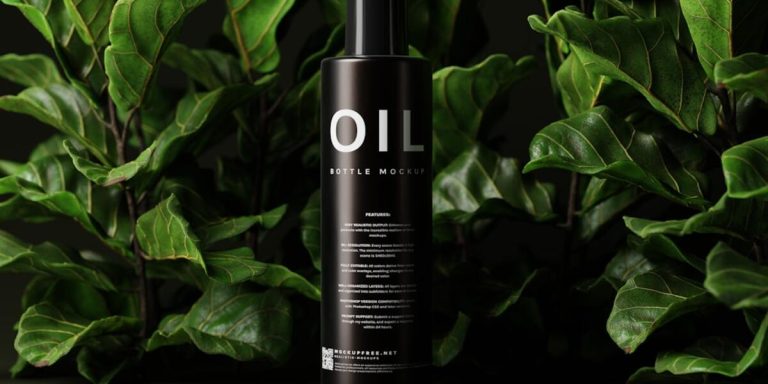Magnesium Hair Regrowth: Unraveling the Science Behind its Effectiveness
Magnesium hair regrowth has become a buzzword in the world of hair care, catching the attention of both professionals and people struggling with thinning or balding. It is an area where scientific research, anecdotal evidence, and personal experiences combine to form a compelling narrative about this mineral’s potential benefits for restoring lost tresses.
The intriguing part lies not only within magnesium’s perceived capacity to reinvigorate dormant follicles but also its overall role in human health. The science behind these claims may unlock new arenas of understanding hair loss’ underpinnings – leading us closer towards effective solutions that are natural yet powerful. This post aims to delve into those details providing you concrete insights on how magnesium potentially affects your crowning glory.
Did you know?
Did you know? Magnesium can counteract calcium deposits in the scalp, a critical factor that leads to hair loss. Hence, sufficient magnesium intake might indirectly stimulate hair regrowth by improving follicular health!
Understanding Magnesium’s Role in Hair Regrowth
Magnesium plays a pivotal role in the journey towards hair regrowth. It aids in calcium absorption, which is essential for maintaining follicle health and stimulating growth. In our modern lives filled with stressors, magnesium’s function as a calming mineral enables it to counteract scalp tension – one of the significant contributors to hair loss.
One might wonder how exactly does this miraculous nutrient work? Well, here’s your answer! Magnesium fuels cellular energy production within the body including those tasked with producing new strands on your head.
Additionally, it forms a protective shield around individual strands so they can withstand daily assault from environmental factors such as sunshine or pollution without losing their strength and integrity.
Maintaining balanced levels of dietary magnesium isn’t just beneficial; it’s essential if you’re bidding adieu to thinning tresses and welcoming abundant locks anew. Incorporating foods rich in this super mineral into your diet helps ensure that all nutrients reach hair follicles efficiently – giving them every chance to produce healthy hairs resilient against damage.
The Science Behind Magnesium and Follicle Stimulation
Magnesium is a remarkably essential mineral that plays a critical role in over 300 enzyme reactions within the human body. One of these vital functions happens to be hair growth, where magnesium serves as an unsung hero.
To understand how it influences hair regrowth—particularly through follicle stimulation—we must delve into some exciting science. This exploration will lead us toward establishing firm connections between magnesium and healthy, vigorous hair.
Now comes the intriguing part—the science behind all this talk around ‘magnesium hair regrowth’. Magnesium aids in calcium absorption—an aspect integral for maintaining strong follicles. In contrast, its deficiency might cause calcification by which excess calcium deposits on scalp tissues leading to weaker hairs prone to fall out easily.
Moreover, our dear friend magnesium helps improve blood circulation—a factor paramount for efficient nutrient delivery towards each strand.right from their roots!
Also compelling enough is another attribute of magnesium—it assists protein synthesis significantly. For the uninitiated ones among us – our locks fundamentally comprise proteins known scientifically as keratin—a substance challenging to produce without sufficient quantities of—you guessed right—magnium!
Key Signs of Magnesium Deficiency Affecting Hair Health
Magnesium holds a significant role in maintaining healthy hair and its deficiency can adversely impact your hair health. It is crucial to understand the signs of magnesium deficiency affecting your hair health if you wish for effective regrowth.
Firstly, one common sign is excessive hair loss. Losing between 50-100 hairs per day is normal; however, noticing clumps of strands falling out could indicate magnesium’s insufficient amount in your body triggering severe shedding.
Secondly, slow growth rate could be another key indication. If despite having a nutrition-rich diet and optimal care routine you still notice that your locks aren’t growing at the usual speed or appear stunted, it may be due to low levels of this important mineral.
Moreover, brittle strands are also indicative signals. Experiencing easy breakage while running fingers through or brushing reveals weakened structure which might occur from lacking enough minerals like Magnesium.
Lastly but importantly: chronic thinning across scalp known as Androgenetic alopecia has been associated with essential nutrient deficiencies including magnesium.
Topical Treatments Versus Dietary Solutions for Hair Regrowth
Topical treatments for hair growth offer quick results by directly nourishing the scalp with essential ingredients like minoxidil or finasteride. These products are applied externally on your scalp area where they work primarily by promoting improved blood circulation and strengthening follicles.
However, many individuals prefer dietary supplements such as magnesium-rich foods or pills because of their holistic benefits. Magnesium plays a crucial role in protein synthesis which is vital for healthy hair development. It keeps our scalps clean with potent anti-inflammatory properties further facilitating unobstructed hair growth while reducing shedding caused due to inflammation.
But remember folks! Striking a balance could be key here too; combining effective topical treatment techniques alongside maintaining balanced nutrient levels might just do wonders for overall hair health.
So next time when you think about “hair regrowth,” don’t forget how incredibly beneficial magnesium can be whether consumed through diet or applied via well-formulated topicals.
Benefits of Incorporating Magnesium-Rich Foods into Your Diet
Why Magnesium? Well, the answer is simple yet profound.
1. Promotes Hair Growth: Ample scientific research has demonstrated that an adequate intake of magnesium can actively stimulate follicular cell growth. The result – steady and healthy regrowth of lost hair strands.
2. Reduces Breakage: Hair is primarily composed of protein fibers known as keratin, and to produce this vital component properly needs sufficient amounts of magnesium present within our bodily systems.
3. Enhanced Blood Circulation: Improved blood circulation means better nutrient distribution across scalp tissues triggering healthier regrowth patterns — something achievable with regular ingestion of magnesium-dense meals.
4.Stress Regulation: Stress-inducing hormones are significantly reduced when you maintain stable levels of dietary magnesium – since these hormones can contribute heavily toward acute bouts with temporary baldness issues like Telogen Effluvium (TE), it lends credence to including such foods in daily meal plans.
So how do we incorporate more Magnesium into our diets?
Comparing Topical Magnesium Sprays and Oils for Scalp Application
Topical magnesium applications in the form of sprays and oils are rapidly gaining popularity in hair regrowth regimes. As a trace mineral, magnesium plays an integral role not only within our bodies but also on our scalp.
The liquid consistency ensures that it saturates your scalp effortlessly with minimum wastage while directly targeting problem areas. With every spray, you can almost hear your follicles thanking you as they soak up this crucial nutrient; it enhances blood circulation which consequently leads to improved follicle health and stimulation ultimately progressing towards healthier growth patterns.
However, one common drawback associated with magnesium sprays is the slight itchiness or tingling sensation some users experience post-application due its quick absorption rate through sensitive skin layers.
Despite being branded as ‘oils’, these solutions are highly concentrated forms of water infused with substantial amounts of dissolved minerals including primarily – yes, you guessed it right – magnesium! Although similar benefits such as improving circulation for fortified roots may be claimed by this method too; there isn’t any over-ruling consensus making them superior over their spraying counterparts just yet.
Repeated uses have shown increased results after allowing them to seep overnight unleashing maximum potential during rest periods without restricting routine tasks throughout the day (ahh..the joy!).
Addressing Common Myths About Magnesium and Hair Regrowth
In the realm of hair regrowth solutions, magnesium often takes center stage. Yet, a myriad of misconceptions about its role in this biological process exist. Among these prevalent myths is the idea that merely ramping up your intake will guarantee lush locks overnight.
Magnesium plays an indispensable part in fostering healthier and stronger strands. It enables vital chemical reactions associated with follicle stimulation and boosts protein synthesis – essential for hair growth. However, attributing all success to one mineral may be oversimplifying matters considerably as hair health relies on several other nutrients too.
Another common fiction posits that any form of magnesium can facilitate significant hair regrowth. While it’s true that various types do contribute positively towards overall health, not all prove equally bioavailable or efficient at promoting tangible changes in your mane’s density or lengthiness.
Lastly lingers the misconception tagging thinning tresses solely upon low levels of bodily magnesium; an insinuation both misleading and incomplete without considering typical culprits like hormonal imbalance, age-related decline in natural regeneration rates or even genetic predisposition to baldness.
As we wade through 2023 turbulences together on our journey toward optimal wellness tips from Soulphany’s copious resources continue dispelling such unfounded tales surrounding remedies including “magnesium for Hair Regrowth”. We aim at separating fact from fable empowering you make informed choices concerning holistic approaches ensuring beauty thrives – scalp onwards!
Debunking Misconceptions: Does Too Much Harm Than Good?
Magnesium, an essential mineral for the human body, plays a crucial role in maintaining overall health and vitality. Numerous people are turning to this potent element as a natural solution to hair regrowth. But like any other remedy on the market today, it’s wrapped up with several myths that can be perplexing – particularly “does too much magnesium harm than good?” Let’s debunk such misconceptions about its effects on hair regrowth.
Firstly: Yes, excessive of anything is harmful – this principle applies equally to minerals including magnesium itself. If consumed beyond recommended guidelines – which for adults lies between 310-420mg daily according to National Institutes of Health (NIH) 2023 statistics – certain side-effects may arise like diarrhea or nausea but these are usually mild and short-lived.
However triumphantly claiming that excess magnesium will lead directly towards hair loss would be far from reality. No scientific evidence supports this notion outrightly; rather some studies suggest lower levels of magnesium might actually contribute towards poor scalp health affecting follicles growth negatively thereby leading indirectly toward possible thinning or baldness patterns.
Yet one thing stands indisputable – balanced consumption holds key here ensuring optimal benefit absorption without bringing forth negative repercussions whatsoever so always consult your healthcare provider before initiating any drastic dietary adjustments around increasing intake within your lifestyle routine.
Realistic Expectations from Supplementing with Magnesium
When considering the use of magnesium for hair regrowth, it’s crucial to set realistic expectations. The connection between magnesium and hair health is no myth; studies have shown that this mineral plays a significant role in maintaining healthy, strong tresses. However, its impact on reversing hair loss may not be as immediate or dramatic as some might hope.
To begin with, we should establish that supplementing with magnesium alone will likely not sprout an entirely new head of thick locks overnight. Hair growth is influenced by numerous factors beyond just nutrient intake – genetics can play a big part too!
It’s also important to understand how magnesium contributes towards healthier hair growth from within your body before expecting visible results in the mirror. Magnesium helps stimulate follicle activity and maintains scalp health through improved blood circulation which fuels each strand right at its root.
In conclusion, while “magnesium hair regrowth” benefits are promising based on scientific evidence so far (2023), individuals planning to give it a try must maintain realistic expectations about their outcomes from this approach.
Conclusion
In the realm of hair regrowth, magnesium truly shines as a potent and effective mineral. Both scientific research and personal anecdotal evidence have attested to its benefits on hair health. Magnesium hair regrowth isn’t just a claim; it’s an established truth backed by science.
Arm yourself with knowledge about the impact of magnesium on hair health and use it to restore your confidence!
Discover holistic methods for restoring your hair to its prime by exploring our website’s ‘Hair Regrowth‘ section, which brims with valuable information. We invite you to delve into this resource-rich world at your fingertips.







